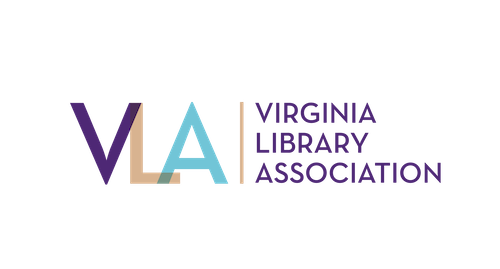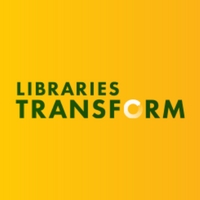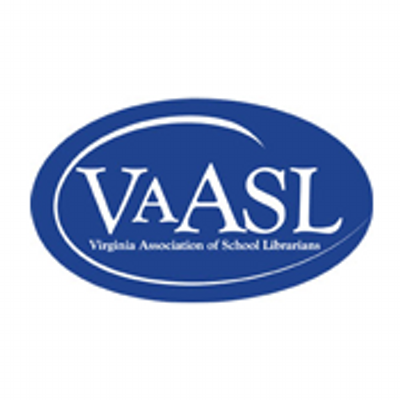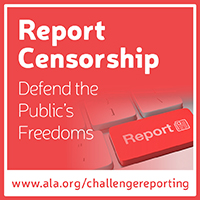|
Update: Based on your feedback, we have updated the language of the statement in an effort to clarify that our response is meant to be general in nature. The statement below incorporates the changes.
We are sending along a statement that a group of VLA and VAASL committee chairs and past executive council members wrote regarding our opposition to the legislation moving through the General Assembly. Times like these call for action, and they also present an opportunity to clarify and share our values with the public. We urge you to read the statement and then help us distribute it to a wider audience. If you’re interested in submitting it to a local publication, please email Shari Henry and Lisa Varga and they can let you know whether or not that publication has already been contacted. Otherwise, please post it to your social media and other online channels. We’d love to hear your feedback along the way.
Thanks so much for standing with and for libraries as we fight for free speech and a healthy democracy.
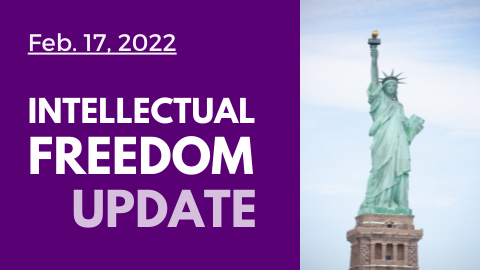
Democracy Depends on the Freedom to Read
Daily we hear cries for book banning by elected officials across America. Sadly, Virginia is not immune. Upon convening this year, the General Assembly began proposing legislation that would give the commonwealth increased power to dictate curriculum choices across the state, by restricting what types of books and materials can be accessed and taught, rather than by utilizing in-place, accepted methods. Governor Youngkin’s Legislative Agenda includes two such bills: HB1009 and SB656.
We recognize each bill carries unique components with it, and that some feel the two bills supported by the governor’s legislative agenda represent a less drastic shift in comparison to several other proposed education bills. However slight, we warn against any course of action in the wrong direction, away from local choice and toward regulating and censoring reading. Our longstanding and deeply held professional values continue to serve as our guide.
As librarians, it’s not our first time watching government overreach by attempting to set policies into state code which are more appropriately decided locally. It’s not the first time we’ve heard elected officials claim parents should have control over their children’s education and reading material, a right parents already hold. And it’s not the first time we’ve seen the government move toward codifying censorship in direct violation of the First Amendment.
The drafting of these bills came as no surprise to those of us who fought against the passage of similar bills years ago, and watched as Laura Murphy (in a social media advertisement during the gubernatorial race) discussed her work on their behalf.
Both 2022 bills mimic those Ms. Murphy lobbied for years ago, and use the same language referencing “sexually explicit” content. According to an article from The Washington Post dated October 25, 2021 (Fight over teaching ‘Beloved’ in schools becomes hot topic in Virginia governor’s race), Murphy took “her fight to the Republican-led General Assembly, which in 2016 passed a bill with bipartisan support to give parents the right to opt their children out of sexually explicit reading assignments. At the time, about half of Virginia school districts already followed that practice, but the bill would have enshrined it in state law….McAuliffe vetoed it as well as a similar bill in 2017.”
As librarians, we stand now where we stood then. We are driven by values we believe protect intellectual freedom and democracy for all.
We believe concerns leading to the drafting of these bills would be better addressed locally, in part, to protect the interests of all stakeholders and to provide flexibility when necessary. In Federalist 10, Madison warned against what we often call the “tyranny of the majority,” citing the harmful effects of “the superior force of an interested and overbearing majority" on government. The more locally power is exercised, the more tyranny is restrained.
We believe labeling of books and material (by policy or law) is a form of censorship, and places the weight of responsibility wrongly on teachers to judge what different parents may deem “sexually explicit.” Legal definitions of the term “sexually explicit” have been intended to prohibit criminal conduct, not reading. We do believe in parents’ rights to oversee what their children read; we don’t believe some parents should unilaterally decide for others.
We believe parents, students, and teachers can work together when disagreements arise to best choose what is appropriate for individual students. Ms. Murphy’s legislative fight was prompted by Nobel and Pulitzer Prize winning author Toni Morrison’s Beloved, a book Murphy felt was inappropriate for her son, a student in an AP 12 English class. Rather than ask for another option, move him to another class, or otherwise follow the school’s established process, she chose to use the legislative system to attempt to dictate for others, removing all “offensive materials” as defined by her and then the state.
Books that end up being challenged were selected because the content addresses experiences important to different communities.These challenges and laws often target authors of color and representatives of other marginalized groups, and are stories including such characters. While Beloved may make readers uncomfortable, discomfort does not make the book less worth reading, something true of many books. Adventures of Huckleberry Finn by Mark Twain is one example consistently taught in schools. It’s worth noting white authors and protagonists can talk about the pain of African Americans, but when an African American author writes about it, material is deemed inappropriate.
Toni Morrison is among the greatest American writers because she writes about the human condition. Sanitizing stories and prohibiting students from reading about hardships, inequities, gender identity, sexuality, and experiencing authentic emotions in response, ignores they face these issues, ask these questions, and advocate for these communities.
Six books on the American Library Association’s 2020 Top 10 Most Challenged list were written by authors of color. Increasingly, challenges target material dealing with racial inequality and LGBTQIA+ issues. Silencing these voices means the majority culture drives what is allowed in schools and is endorsed as knowledge. Plus, decreasing the number of perspectives diminishes intellectual rigor.
In 1860, Frederick Douglass declared, “No right was deemed by the fathers of the Government more sacred than the right of speech…Liberty is meaningless where the right to utter one's thoughts and opinions has ceased to exist.” Douglass was right. We are left asking what good utterances are if no one can read or hear them?
We believe liberty is meaningful where people are able to decide for themselves what to utter, and to exchange their thoughts and opinions freely. We not only fail our students when we strip them of this right, we fail America.
Christina Harris
Virginia Library Association
Chair, LGBTQIA+ Forum
Shari Henry
Virginia Library Association
Chair, Advocacy Task Force
Olivia Hasan
Virginia Library Association
Chair, Librarians of Color Forum
Martha Hutzel
Virginia Library Association
Past President
Kelly Miller
Virginia Association of School Librarians
Information Freedom Chair
Keith Weimer
Virginia Library Association
Past President
-February 25, 2022
|
